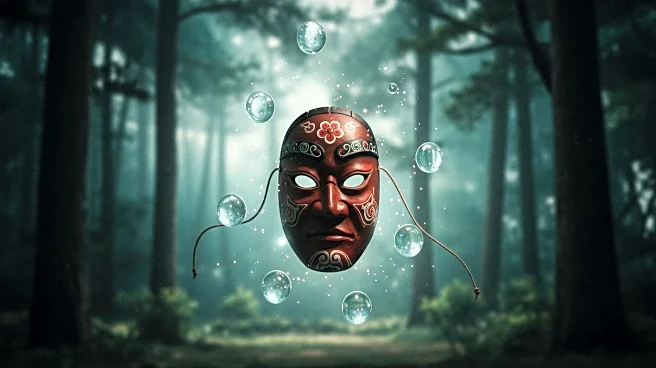What's Happening?
Nexon Games, in collaboration with LoreVault, has announced a new single-player action-adventure game titled 'Woochi the Wayfarer'. The game is set in the Joseon Era and is inspired by a classical Korean novel about the taoist wizard Jeon Woochi, who combats injustice and deceives the corrupt. The game aims to bring Korean folklore to life, offering a unique play experience that resonates emotionally with a global audience. Nexon Games CEO Park Yong-hyun emphasized the game's potential to appeal to gamers worldwide by showcasing the company's development capabilities and experience. The game will feature authentic Korean music composed by the same artist behind 'Squid Game' and 'Parasite'. Developers have also consulted history experts and visited real locations to ensure cultural authenticity. 'Woochi the Wayfarer' will be available on PC, PlayStation 5, and Xbox Series, though the release date has not yet been announced.
Why It's Important?
The announcement of 'Woochi the Wayfarer' is significant as it highlights the growing influence of Korean culture in the global gaming industry. By incorporating traditional Korean folklore and music, the game not only serves as entertainment but also as a cultural ambassador, potentially increasing interest in Korean history and culture. This move by Nexon Games could set a precedent for other game developers to explore and integrate diverse cultural narratives into their projects, broadening the scope of storytelling in video games. Additionally, the use of Unreal Engine 5 promises an immersive experience, which could attract a wide range of players and boost the game's success in international markets.
What's Next?
As the development of 'Woochi the Wayfarer' progresses, gamers and industry analysts will be watching for further announcements regarding gameplay features, release dates, and marketing strategies. The game's success could influence future projects by Nexon Games and other developers, encouraging them to explore culturally rich narratives. Additionally, the reception of the game could impact how Korean culture is perceived globally, potentially leading to more collaborations between Korean and international entertainment industries.









